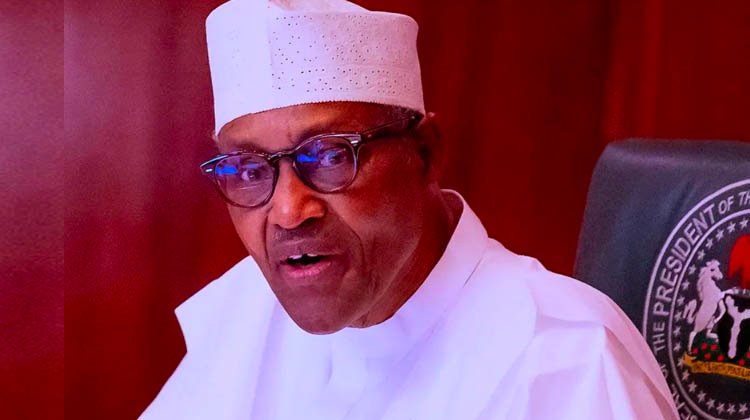
In this piece, ANOZIE EGOLE looks at the impact of insecurity and foreign exchange scarcity on Nigeria’s capital importation
Capital importation deals with inflows that come in the form of portfolio and direct investments. It also includes other investments such as trade credits.
It is, no doubt, one of the major ways of ensuring stability in the economy of any nation. Apart from being a major source of foreign exchange, it provides the needed liquidity and jobs in the economy. It also determines the level of economic growth that will be acheieved over a period, economists have said.
Capital importation is divided into foreign direct investment, foreign portfolio investment and other investments.
A drop in capital importation into any country is simply an indication that the country may likely being passing through though times or losing the confidence of investors.
In global trade, the more capital importation the country has, the more it has access to foreign exchange for international trade. This, experts say, goes a long way in reducing the rate of inflation.
In a recent reports by the National Bureau of Statistics titled, ‘Nigerian Capital Importation Q2 2022’, the agency said that the total value of capital importation into Nigeria in the second quarter of 2022 stood at $1.535bn from $875.62m in the corresponding quarter of 2021, showing an increase of 75.34per cent.
The report also said that when compared to the preceding quarter, capital importation decreased by 2.40per cent from US$1,573.14m. The largest amount of capital importation was received through portfolio investment, which accounted for 49.33percent (US$757.32m).
There was a 2.40percent decrease in the capital importation when compared with the proceeding year, which is indeed a negative pointer for the precarious situation of the economy.
Experts, including economists and bankers, attributed the decrease to a lot of factors, including but not limited to the forthcoming general election, insecurity, and forex scarcity, amongst others.
A former president of the Chattered Institute of Banker of Nigeria, Uche Olowu, told THE PUNCH, said that lack of confidence in an economy could also trigger a reduction on capital importation. He also blamed war, energy crisis, inflation and insecurity as major reasons why investors lacked confidence in the nation’s economy.
“What triggers that is the confidence in the economy. Generally, there is a low level of investment because of what is happening as regards the Russia-Ukraine war, energy crisis, and inflation.
“Above all, the level of insecurity does not create confidence for investors to come into the economy. Cost of doing business is very high; you don’t have people coming to bring in level of investment that we expect. So, the problem we have is multifaceted, endogenous and exogenous.”
Explaining further, Olowu said that various central banks were trying to tame inflation, making investors conscious on where to invest.
“Generally in the global economy, central banks in various economies are trying to tame inflation so people are being very conscious regarding where to invest. This is also one of the reasons for the low capital importation in the economy.”
According to Olowu, “We need to create that confidence. Another factor will also be this coming election. You know investors will like to watch and see the outcome of the election and see the stability. So, if there is some element of stability, we will begin to see people bringing in capital for one investment or the other and for portfolio investment.”
Olowu further said, “So all these put together have kind of affected the flow of fund from the developed world to our own economy. And then, if I bring in my money, can I take it back? The other day you saw that the foreign airlines had issues because of the inability to take back their forex. You want to bring in money, you want to ensure that anytime you want to take it you can have it back. You look at it in the sum total that having confidence in the economy is part of the challenge.”
Also speaking the Director-General of the Nigeria’s Employers Consultative Association, Mr Adewale Oyerinde, said that the report indicated negative trend in the quarter-by-quarter analysis, as most items pointed in the downward direction.
Oyerinde said that foreign investors were only responding to the negative macroeconomic environment, security challenges and high inflation rate, which were contributing to low yields for their investment outlays.
“The current exchange rate volatility and uncertainty of repatriation of funds and other earnings to their parent countries have become a debacle and an influencer to the downward trend.”
A Director of Research and Strategy at Chapel Hill Denham, Tajudeen Ibrahim, said that the NBS report showed that the country was coming from a low base.
“One thing we have to take away from the data published by NBS is that we are coming from a low base. So, there is a low base effect on the data. I can see that the data shows that capital importation grew by 75.34 per cent so it is a low-base effect. If you look at the Q2 of this year, it is $1.535bn that is coming from a very low number. You know the number that we have in Q2 2021 was one of the lowest numbers in many years. So the growth we are seeing is as a result of low-base effect. So, the Q2 2022 is $1.573bn and we are comparing it with Q2 2021 which is $0.875bn.”
“So, because we had a low base last year, we are seeing massive growth of 75 per cent that is number one. So, the growth that we are seeing is reflective of a low base effect. Second thing is that for us to understand this number, let us compare the previous quarters before COVID-19.”
Ibrahim said that the country was experiencing consistent decline in capital importation because of the fear of investors around the liquidity in the foreign exchange market.
“Generally speaking, Nigeria is seeing a consistent decline in capital importation because of the fear of investors around the liquidity in the foreign exchange market. They are not bringing in capital as much as they were previously in the country. In a normal environment, one quarter should be around $5bn to $6bn in capital importation. But they are celebrating $1.5bn because it is showing us a growth rate of 75 per cent which was driven by the low base that we had last year.”
The Chief Executive Officer, Center for Private Enterprises, Muda Yusuf said, “Our foreign exchange policy is not favourable to capital importation because it is extremely difficult to get anybody to bring in capital. At an exchange rate of N420/$, nobody will bring it in except in a very rare situation. For most investors, as long as you have a fixed exchange rate regime, they are not likely going to bring in capital into this country. So it is a foreign exchange leadership problem.”
He also fingered the challenges with the oil and gas sector as one of the reasons for the drop in capital importation.
“The second point is the perception of the country in terms of insecurity. Most of the news making headlines about Nigeria is usually negative, especially around the issue of insecurity. That is also a major one. Then, one of the sectors through which we get a lot of capital importation is oil and gas. Now, all the problems in oil and gas, insecurity, oil theft, policy problems have significantly affected capital import to that sector and the sector has significantly affected a huge chunk of capital to this economy.
“It is having a negative effect. If you don’t have enough capital, how will you strengthen your economy? If you don’t have capital inflows, how will you build your reserves? The situation is already bad it is not now. It will not likely get worse, but it is almost at the rock bottom because when you look at the figures now they are not so significant any more over time. The amount it has become almost immaterial, so it is as if we are already at the worst as far as capital importation is concerned.”
What next?
The experts expressed hope that there will be a spike in capital importation after the general election in February 2023. They stressed the need for the country to kick-start measures towards rebuilding investor confidence.
Yusuf said that until some of the challenges were addressed, the situation might get worse by day.
“If we don’t improve on foreign exchange policy, we don’t improve on the security around investments in oil and gas, we don’t improve on the perception of the country, the situation will definitely get worse. If we don’t address all these problems, the situation will get worse. That could affect our reserves and have an effect on the exchange rate.”
NECA DG, Oyerinde, advised the Federal Government and managers of the economy to address issues affecting the economy.
“Similarly, addressing the policy directions as contained in the National Development Plan (2021- 20225), which seeks to increase private sector participation in the economy, is expected to prompt macroeconomic and industrial reforms, which, in turn, should increase the attractiveness of Nigeria to foreign investors.”
For Olowu, “To me, I think we can begin to do something. Nigeria is the next frontier, and investors that will take risk to invest should reap 100-fold. The phobia is there. I think it is because of lack of confidence. I think when we sort our elections out, we will see quite a lot of flows coming into the country again,” he concluded.





